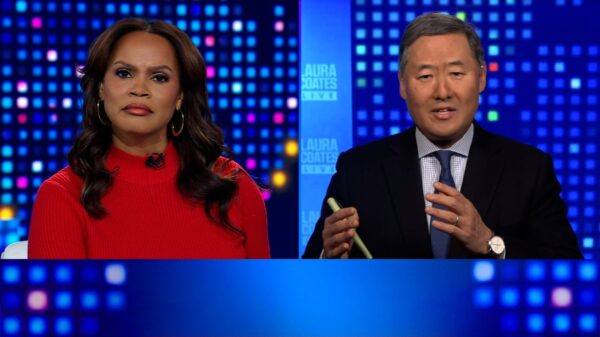Many California consumers are grappling with unexpected tariff charges when ordering imported goods online. Residents like Carlos Soto from Ventura County recently experienced a significant increase in delivery costs after purchasing items from overseas. This year, Soto ordered a Liverpool Football Club jersey for approximately $150, only to be informed by a UPS delivery driver that he needed to pay an additional $107 to receive his package. Frustrated, he declined the payment and requested a refund.
This situation has arisen following changes to U.S. tariff policies. In August 2023, former President Donald Trump reversed a long-standing tariff exemption known as de minimis, which allowed goods valued at less than $800 to enter the country without incurring duties. According to U.S. Customs and Border Protection, this exemption facilitated the entry of over 1.30 billion packages into the U.S. in 2024.
As consumers like Soto voice their displeasure on social media platforms, reports of surprise charges are becoming increasingly common. Individuals have shared stories of receiving unexpected bills for items as varied as mouse pads and bridesmaid dresses. One Reddit user even reported a staggering $4,700 fee for a specialized desk chair imported from Bulgaria.
“If you import anything to the United States, you most likely have been impacted,”
said Mark Hartlidge, a small package compliance manager at UPS, during a webinar for customers. With the new regulations in place, delivery companies have been working to inform consumers about their obligations regarding tariffs. Despite these efforts, many customers continue to express confusion when confronted with unexpected bills.
Large logistics firms such as UPS, FedEx, and DHL are doing their best to address customer inquiries and clarify the new rules. UPS spokesperson Jim Mayer explained, “Our brokerage services are designed to ensure shipments comply with regulations and pay necessary duties and taxes.” He noted that if either the shipper or receiver has not covered these costs, UPS generates a bill to facilitate the release of the shipment by Customs.
In some instances, smaller businesses that export directly to the U.S. are not effectively communicating these additional costs to consumers. For example, David Herr, a classic car restorer from Washington, D.C., ordered an auto part from Belgium for around $200. Herr anticipated that he would incur some import fees, but he was taken aback when he received a delivery charge of $493.
Online retailers have adopted various strategies in response to these tariff changes. The popular fast fashion site Shein, based in Singapore, assures customers that their checkout price is final, claiming, “There’s lots of chatter about tariffs, but here’s why you don’t need to worry about paying anything extra after checkout.” Similarly, Temu, another low-cost online retailer, states on its website that customers will face “no import charges for all local warehouse items and no extra charges upon delivery.”
As consumers navigate these new financial realities, many are reconsidering their shopping habits. Meg Moore, an online shopper from the Chicago area, expressed her reluctance to purchase a beauty product advent calendar priced at $365 due to anticipated tariff costs. “They’ll add at least $100 just to send it here,” she lamented.
The de minimis exemption was introduced in 1938 to encourage trade and streamline customs processing. Over the years, lawmakers have raised the duty-free threshold multiple times, with the most recent adjustment allowing for packages valued under $800 to enter the U.S. without tariffs. However, Trump labeled the rule a “scam,” arguing that it undermines American businesses and facilitates the entry of potentially dangerous goods without proper oversight. His administration terminated the de minimis exemption for goods from China in May 2023 and extended the ban to items from other nations in August of the same year.
Despite these changes, certain items, such as documents and gifts valued under $100, continue to be exempt from import taxes. Meanwhile, Soto remains in search of a Liverpool jersey within California, still awaiting the refund for his returned purchase. Reflecting on the impact of these tariff changes, he noted, “When it comes to politics and government, I’ve always kind of turned away from it. But this time it actually hurt my pocket.”






































































